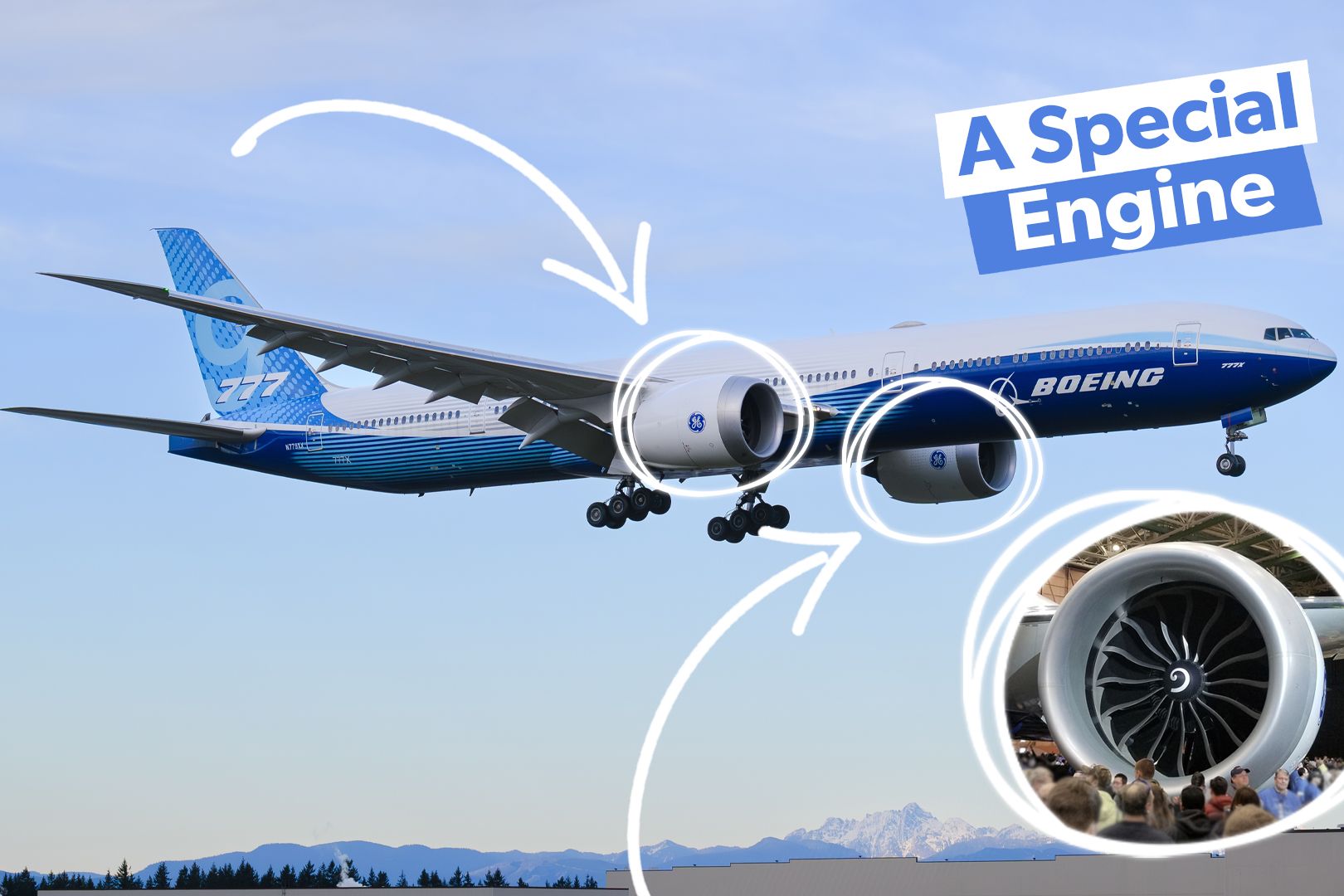Summary The Boeing 777X will be exclusively powered by the GE9X, the largest commercial aircraft engine on the market. So far, the engine has accumulated over 900 orders, according to GE Aerospace. The FAA certified the engine on October 2, 2020.
When Boeing announced the Boeing 777X aircraft program, comprised of the 777-9, 777-8, and 777-8F at the Dubai Airshow on November 20, 2013, the manufacturer stated that the then-latest aircraft would be exclusively powered by the all-new GE9X engines, which would be developed by GE Aerospace (then known as GE Aviation before it was spun off into an independent company) . The company touted a 12% fuel consumption advantage over its competitor, enabled by an all-new composite wing, which was based on the design of the wing of the Boeing 787 , aerodynamic advances, and the GE9X. Since then, the GE Aerospace engine has accumulated over 900 orders, according to the company's executives who spoke at its annual shareholders meeting on May 7.

Airlines with Boeing 777X orders Order amount (as of July 31, gross orders only) Air India 10 All Nippon Airways 20 British Airways 18 Cargolux 10 Cathay Pacific 21 Emirates 262 Ethiopian Airlines 8 Etihad Airways 25 Lufthansa 27 Qatar Airways 74 Silk Way West Airlines 2 Singapore Airlines 31 Unidentified customer(s) 32 Total 540 In total, Qatar Airways had 94 commitments for the 777X, including passenger and cargo aircraft. GE9X engine specifications In detailing the GE9X's specifications, GE Aerospace stated that the engine was unique in the market since there was no substitute for its size, power, and fuel efficiency. " This engine will deliver unsurpassed value and reliability to our airline customers.
" One fan, three booster, and 11 compressor stages High-pressure turbine (HPT): 2 Low-pressure turbines (LPT): 6 Length: 220 inches (5.5 meters) Weight: around 22,000 pounds (9,979 kilograms) Ceramic Matrix Composites (CMC) parts: over 100 Total parts: over 31,000 Bypass ratio: 99:1 Fan Speed N1: 2,510 revolutions per minute (RPM) Core speed N2: 11,119 RPM Thrust: 134,300 pounds of thrust (597.396 kN) In addition, the engine maker indicated that the GE9X produces half the NO x gases compared to other engines in its class and has 50% lower emissions without specifying the benchmark.
Still, the company said that the GE9X's emissions values were at or below regulatory requirements. Furthermore, the engine's specific fuel consumption (SFC) is 10% lower than on the GE90, which has powered the Boeing 777 -200, 777-200ER, 777-200LR, 777-300ER, and 777F aircraft equals around 3,000 metric tons of fuel annually, which is roughly 9,500 metric tons of CO2 and approximately 2,060 cars removed from the road. " The GE9X features the same world-class reliability as the GE90-115B, with noise and NOx emissions well below anticipated regulation standards.
" Despite being larger and more capable, the GE9X is rated at a lower thrust than its predecessor, GE90. Certification efforts and delays related to the GE9X However, the process of developing and certifying the engine has not been smooth. In June 2019, Boeing had to deal with a GE9X issue that delayed the first-ever flight of the 777X, as the durability issues had affected the widebody aircraft engine.
A month later, Boeing's Q2 2019 filing revealed that the company had delayed the first flight of the 777X to 2020 , which eventually happened on January 25, 2020. In August 2019, FlightGlobal reported that GE Aerospace was shipping four GE9Xs back to Ohio, the US, to upgrade them with the latest high-pressure compressor (HPC) hardware enhancements. On October 2, the engine maker announced that the Federal Aviation Administration (FAA) certified the GE9X, with the certification campaign involving nine engines.
The regulator's approval of the GE9X had resulted in the renewal of GE Aviation's commercial jet engine portfolio, with the 777X engine complementing the GEnx, powering the 787, and the CFM International LEAP-1B that is mounted on the wing on the 737 MAX aircraft family. CFM International is a joint venture between GE Aerospace and France-based Safran Aircraft Engines, with the company also building the LEAP-1A for the Airbus A320neo and LEAP-1C for the COMAC C919 aircraft families. At the time, GE Aerospace stated that the GE9X test engines completed just under 5,000 flight hours (FH) and 8,000 flight cycles (FC) during the certification campaign.
John Slattery, the now-former president and chief executive officer (CEO) of GE Aerospace, remarked that it took the best talent in aerospace to create such a game-changing product as the GE9X. " There is no substitute that can achieve the combination of size, power and fuel efficiency of the GE9X. This engine will deliver unsurpassed value and reliability to our airline customers.
I want to congratulate the entire GE9X team and thank Boeing, our partners and suppliers for the collaboration on this incredible achievement." Nevertheless, GE Aerospace delivered the first production engine to Boeing in July, with the GE9X leaving the company's Peebles, Ohio, the US facilities on July 17. The engine was delivered on a truck.
While Boeing still had hoped to certify and deliver the first 777X in 2025, a recent incident could delay those plans. As reported first by The Air Current, Boeing discovered severed thrust links on the engine mounting of the 777X, which was a part designed by Boeing . Further inspections showed two more 777X aircraft with cracks at the same spot, with the manufacturer's spokesperson saying that Boeing would resume flight certification activities when they are ready.
Boeing insists that the first 777X delivery will happen in 2025..



















